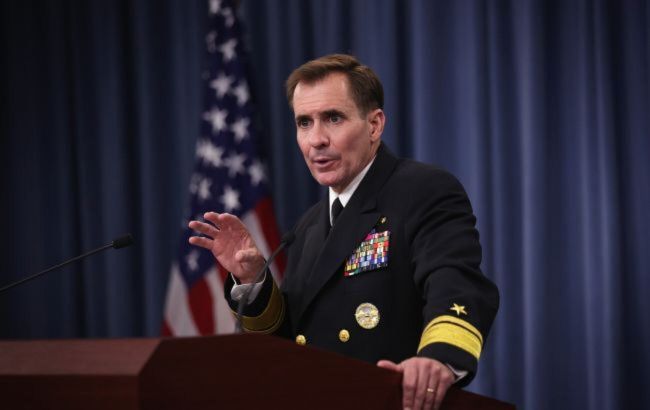John Kirby on airdrop of humanitarian aid to Gaza
 White House National Security Communications Advisor John Kirby (photo: Getty Images)
White House National Security Communications Advisor John Kirby (photo: Getty Images)
White House National Security Communications Advisor John Kirby states that US humanitarian aid to Gaza by air complements the slow-moving ground aid. However, a ceasefire plan is still necessary, according to The Washington Times.
He emphasized the need to continue exploring alternative ways of delivering humanitarian aid to Gaza after Israeli forces killed over 100 people when they tried to reach a humanitarian aid convoy on Thursday, February 29.
According to him, the airdrop of aid was a challenging operation, as Gaza is a very densely populated area. Therefore, it was important to bring aid as close to the people as possible without endangering them.
In addition, John Kirby spoke about the growing pressure on Biden to act more decisively to alleviate the suffering of Palestinians. The US president acknowledged that a ceasefire agreement could be delayed after Israeli forces opened fire on a crowd of Palestinians queuing for aid.
"We were working on this idea again for some time here, knowing that we weren’t meeting the need totally through convoys," Kirby added.
On Saturday, March 2, the US conducted an airdrop of humanitarian aid for the residents of the Gaza Strip. Three US C-130 aircraft delivered over 38,000 food rations to an area where, according to the UN, a quarter of the population is on the brink of starvation.
These actions are part of ongoing efforts to provide aid to Gaza by expanding the flow of assistance through ground corridors and routes, the US reported.
Negotiations are also underway for a possible period of calm in the Gaza Strip, where the Israeli army is conducting a six-week military operation against Hamas militants. According to a US official, the agreement for a six-week ceasefire is currently on the table.
This statement was made after US President Joe Biden expressed concern about the possible complication of negotiations following the incident with mass casualties in the queue for humanitarian aid to Gaza.
Kirby said that with the cessation of hostilities, aid would be able to flow more freely, and the release of hostages would be carried out gradually, starting with women, the elderly, and the wounded. He added that the states will actively work on this issue in the coming days.

